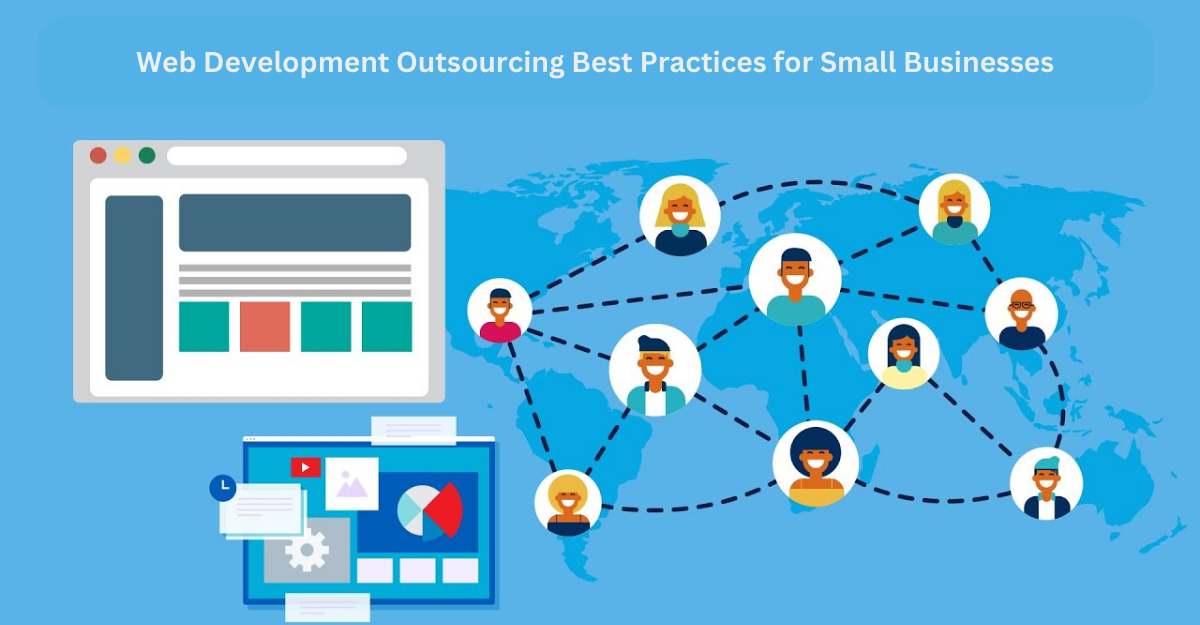In today’s fast-paced business world, staying competitive and efficient is essential for enterprises of all sizes. Customized software solutions have emerged as a game-changer, empowering businesses to streamline their operations, enhance productivity, and achieve their unique goals. In this article, we will explore the world of customized software solutions for enterprises, delving into their significance, benefits, and how they can revolutionize the way businesses operate.
Software development is at the heart of modern corporate operations. In an era where digital transformation and technological advancements are reshaping the business landscape, corporations must adapt and innovate.
Introduction
In the digital age, software has become the backbone of almost every enterprise. Off-the-shelf software may serve some purposes, but it often falls short when it comes to meeting the unique needs and objectives of a business. This is where customized software solutions come into play.
corporations rely on software for nearly every aspect of their operations, from managing finances to optimizing supply chains and delivering exceptional customer experiences. The ability to innovate and adapt swiftly in the realm of software development has become a competitive advantage like no other.
The Need for Customized Software Solutions
Every enterprise is different, and their software requirements reflect this diversity. Off-the-shelf software is designed for a wide audience, making it a one-size-fits-all solution. However, this can lead to inefficiencies, as enterprises end up paying for features, they don’t need while lacking essential functionalities. Customized software solutions bridge this gap by tailoring applications to meet specific business needs.
Tailoring Software to Business Needs
Customized software solutions are designed to align with the exact requirements and goals of an enterprise. This level of customization ensures that the software seamlessly integrates with existing workflows, addressing pain points and enhancing efficiency.
Advantages of Customization
-
Enhanced Productivity
Custom software streamlines processes, reducing manual work and the risk of errors. This, in turn, boosts productivity as employees can focus on value-added tasks.
-
Competitive Advantage
Tailored software can give enterprises a significant edge over competitors. It allows them to innovate, adapt quickly to market changes, and provide unique offerings to customers.
-
Scalability
Customized solutions can grow with your business. As your enterprise expands, the software can be adapted to accommodate increased data, users, and functionalities.
-
Data Security
Custom software can be built with robust security measures to protect sensitive data, reducing the risk of data breaches.
Choosing the Right Development Partner
Selecting the right development partner is crucial. It’s essential to collaborate with a reputable software development company with a proven track record in creating customized solutions.
The Development Process
The development process involves thorough planning, designing, coding, testing, and deployment. It’s a collaborative effort between the development team and the enterprise to ensure that the software aligns perfectly with the business’s objectives.
Integrating Custom Software
Integrating customized software into existing systems requires careful planning to avoid disruptions. Compatibility and seamless data transfer are critical considerations.
Cost Considerations
While custom software may have a higher initial cost than off-the-shelf solutions, the long-term benefits and ROI often outweigh the investment.
Measuring ROI
Measuring the return on investment is essential to assess the effectiveness of customized software solutions. It involves evaluating the impact on productivity, revenue, and cost savings.
Security and Data Privacy
Ensuring the security and privacy of sensitive data is paramount. Custom software can be designed with robust security features and compliance with data protection regulations.
Scalability
As your enterprise grows, the software should adapt. Scalability is a key advantage of customized solutions, allowing for seamless expansion.
User Training and Support
Proper training and ongoing support are crucial to ensure that employees can effectively use the custom software.
Case Studies: Successful Implementations
Explore real-world examples of enterprises that have successfully implemented customized software solutions to achieve their business goals.
Challenges to Consider
While customized software offers numerous benefits, it’s essential to be aware of potential challenges, such as project timelines, budget constraints, and change management.
The Role of Software in Corporations
Software is the invisible thread that weaves through the fabric of modern corporations. It powers processes, enhances decision-making, and enables efficient communication. Whether it’s enterprise resource planning (ERP) systems, customer relationship management (CRM) software, or cutting-edge analytics tools, software underpins corporate success.
The Significance of Innovation
Innovation in software development is the catalyst for growth and transformation in corporations. It involves the creative application of technology to address existing challenges and explore new opportunities. Innovative software can help corporations:
-
Enhance Efficiency
Innovative software streamlines workflows and automates routine tasks, freeing up valuable human resources for more strategic endeavors.
-
Improve Decision-Making
Data-driven insights from innovative software empower corporations to make informed decisions and pivot quickly in response to market changes.
-
Stay Competitive
Innovation keeps corporations ahead of the competition by enabling the delivery of new products, services, and experiences that resonate with customers.
Agile Development: A Key Approach
Agile software development methodologies have gained prominence in corporations looking to innovate rapidly. The Agile approach emphasizes collaboration, flexibility, and customer-centricity, enabling faster development cycles and adaptive responses to changing requirements.
Trends in Innovative Software Development
The software development landscape is constantly evolving. Corporations must stay attuned to emerging trends such as:
-
Artificial Intelligence (AI) and Machine Learning
AI-driven software can analyze vast datasets, predict trends, and automate decision-making, revolutionizing industries like finance, healthcare, and marketing.
-
Internet of Things (IoT)
Corporations leverage IoT to collect real-time data from devices and sensors, enabling proactive maintenance, supply chain optimization, and improved customer experiences.
-
Blockchain
Blockchain technology offers secure, transparent, and tamper-proof record-keeping, with applications ranging from supply chain tracking to secure financial transactions.
-
DevOps and Continuous Integration/Continuous Deployment (CI/CD)
DevOps practices and CI/CD pipelines facilitate faster and more reliable software releases, reducing downtime and enhancing reliability.
Customization vs. Off-the-Shelf Solutions
Corporations often face the dilemma of choosing between customized software solutions and off-the-shelf products. While off-the-shelf solutions offer convenience, customized software provides a tailored fit for specific needs.
Overcoming Challenges
Innovative software development isn’t without its challenges. Corporations must address issues like:
-
Budget Constraints
Innovation requires investment, and corporations must strike a balance between cost and potential benefits.
-
Skill Shortages
The demand for software developers with expertise in emerging technologies can outstrip supply, making talent acquisition a challenge.
-
Security Concerns
Innovative software must prioritize robust security measures to protect sensitive corporate data.
Case Studies of Innovative Corporations
Discover how leading corporations have harnessed the power of innovative software to transform their operations and achieve remarkable results.
Measuring the Impact
Measuring the impact of innovative software development is essential. Key performance indicators (KPIs) can gauge the effectiveness of software in enhancing efficiency, reducing costs, and driving revenue growth.
The Future of Software Development for Corporations
As technology continues to advance, corporations must remain agile and forward-thinking. The future of software development holds promises of even greater innovation, with AI, quantum computing, and augmented reality poised to reshape corporate landscapes.
Conclusion
Customized software solutions for enterprises are a powerful tool for achieving operational excellence, fostering innovation, and gaining a competitive advantage. By tailoring software to specific business needs, enterprises can optimize their processes and drive growth in the digital age.
Innovative software development is the cornerstone of corporate success in the digital age. Corporations that embrace innovation, leverage emerging technologies, and prioritize agility will thrive and lead their industries into the future.




